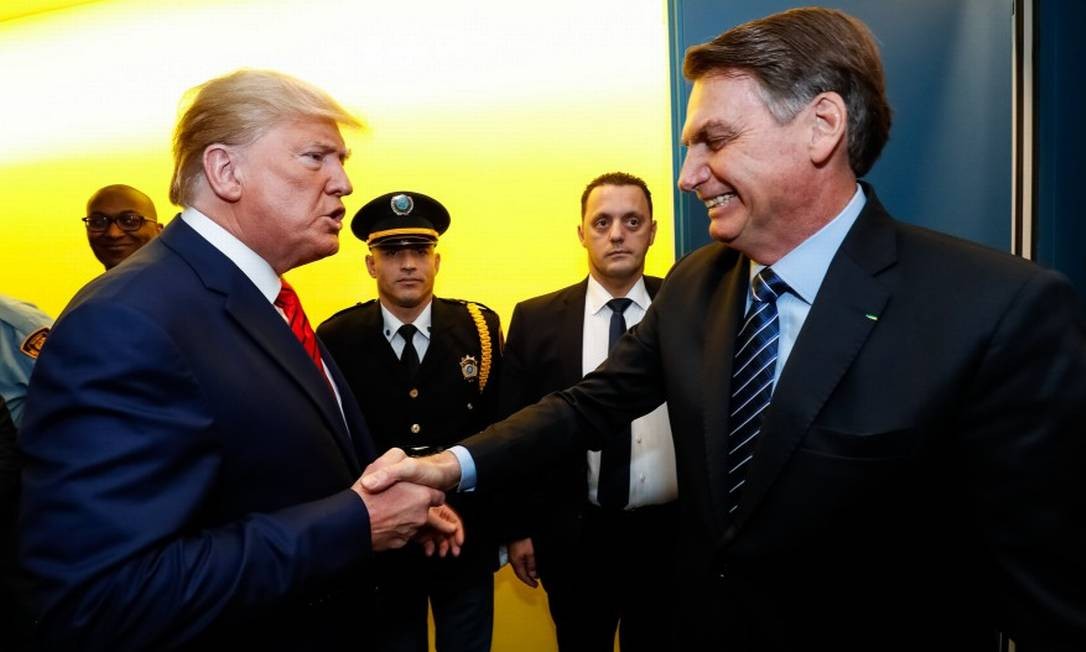| |||
| |||
Temas de relações internacionais, de política externa e de diplomacia brasileira, com ênfase em políticas econômicas, em viagens, livros e cultura em geral. Um quilombo de resistência intelectual em defesa da racionalidade, da inteligência e das liberdades democráticas.
Este blog trata basicamente de ideias, se possível inteligentes, para pessoas inteligentes. Ele também se ocupa de ideias aplicadas à política, em especial à política econômica. Ele constitui uma tentativa de manter um pensamento crítico e independente sobre livros, sobre questões culturais em geral, focando numa discussão bem informada sobre temas de relações internacionais e de política externa do Brasil. Para meus livros e ensaios ver o website: www.pralmeida.org. Para a maior parte de meus textos, ver minha página na plataforma Academia.edu, link: https://itamaraty.academia.edu/PauloRobertodeAlmeida;
Meu Twitter: https://twitter.com/PauloAlmeida53
Facebook: https://www.facebook.com/paulobooks
| |||
| |||
Bolsonaro Government’s Message to Biden: Trumpism Lives On in Brazil
By Samy Adghirni and Walter Brandimarte
Bloomberg News, 15 de janeiro de 2021 07:35 BRT
Brazil foreign minister says conservatives are being silenced
Ernesto Araujo hopes Biden will understand Brazil as Trump did
Brazilian President Jair Bolsonaro’s government, which embraced both the Trump administration and its core ideals, wants President-elect Joe Biden to know that it’s not about to reverse course in response to the change of U.S. leadership.
Instead, it expects Biden to realize that Brazil and the U.S. have many shared interests, including promoting democracy and security in Latin America, and are not on opposite sides regarding the environment, according to Foreign Minister Ernesto Araujo.
“We hope that the new U.S. administration perceives our government for what it really is, for what the Brazilian people are and stand for,” Araujo said in an interview at his office in Brasilia on Thursday. “Both sides must make an effort for mutual understanding.”
That type of mutual comprehension came easily with Donald Trump, not only because of his friendship with Bolsonaro but because Trump understood that Brazilians made a choice by electing the former army officer as their president, Araujo said. In exchange for Brazil’s alignment with U.S. positions, Trump lifted a ban on fresh-beef imports from the Latin American country, supported its bid to join the Organisation for Economic Co-operation and Development, and signed deals for cooperation in defense and space exploration.
Brazil, as Latin America’s largest economy, does more trade with the U.S. than any other country except China. Yet Bolsonaro has been publicly at odds with Biden since he threatened Brazil in a campaign debate with “significant economic consequences” if it didn’t act to preserve the Amazon. People familiar with Biden’s plans said in December that he would lead a united Western front to put pressure on Bolsonaro to adopt stricter environmental policies, following two years of international outrage over the spread of fires destroying the rainforest.
Araujo, however, said that environmental concerns are overblown by local and international media. Brazil remains in the Paris Agreement, he said, and has made an important offer to bring forward its carbon neutrality goal in exchange for $10 billion a year from developed countries. He said that with the U.S. set to rejoin the global accord, there will be more money on the table for such payments.
Conservatives Silenced
Bolsonaro, who styled himself a Brazilian version of Trump, publicly supported his candidacy and was one of the last world leaders to congratulate Biden for his victory. Last week, as rioters invaded the U.S. Capitol, the Brazilian president repeated claims that there had been “a lot of fraud” in the U.S. vote as well as during his own 2018 election -- which he claims he should have won in the first round of voting.
Araujo declined to comment on the fraud allegations but said that concerns over voting systems in the U.S., Brazil and other countries are legitimate and must be addressed. He condemned the violence in Washington last week but cautioned that it can’t be used as an excuse to muzzle conservative voices around the world.
“As much as nothing justifies the invasion, nothing justifies the curtailment of freedom of speech,” he said, criticizing Twitter Inc’s decision to ban Trump from the platform and accusing the company of removing thousands of his own followers for no clear reason. “It’s become a witch hunt,” Araujo said.
The minister didn’t rule out the possibility that the type of protests seen in Washington could happen elsewhere, including in Brazil’s 2022 presidential election.
“When people feel suffocated in their capacity to speak and hear, this can lead to serious problems in any country,” he said.

